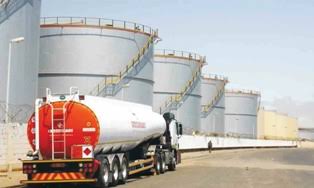
In the wake of President Bola Tinubu’s decision to eliminate Nigeria’s fuel subsidy in May, the country has seen a sharp 48% drop in its petrol imports from Europe.
Recent data obtained from S&P Global Commodities at Sea, underscores the impact of removing the fuel subsidy on the demand for Premium Motor Spirit, with figures showing nearly a 50% reduction.
As indicated in the report, petrol imports to Nigeria nosedived from 205,200 barrels per day (bpd) in May to 106,000 bpd in July. This translates to a substantial 48% decrease in demand, attributed to the hike in local petrol prices since May 29. Over the same period, the total demand for refined products has also experienced a significant 41% decline.
The World Bank’s June estimates suggest that the subsidy withdrawal could potentially save Nigeria a substantial N11 trillion ($2.6 billion) in 2023, offering much-needed relief to the growing government deficit.
This pivotal change in subsidy policy has upended the established arbitrage landscape for European refiners. While Nigeria’s demand has dwindled, other regions have taken up the demand slack. The US Atlantic Coast, driven by persistently low stocks, accounted for 28% of total petrol exports from the Amsterdam-Rotterdam-Antwerp area in July. This contrasts with its previous share in the low teens, which had closely mirrored the diminishing Nigerian demand.
The decreased Nigerian demand has failed to deter European refiners due to a robust arbitrage and tightening octane levels, which have lent strong support to the gasoline market.
Furthermore, the report reveals that European traders were initially grappling with the influx of Russian refined products flooding African markets, including Nigeria. However, even Russian exports to Nigeria have sharply declined following the removal of the fuel subsidy.
The declining Nigerian demand, primarily driven by surging fuel prices, has triggered a drop in European export demand as well. European refiners, accustomed to relying on thirsty West African markets, have felt the impact of the lack of demand in the region.
A source emphasized, “Considering the Nigerian subsidy removal, demand is indeed depressed.”















